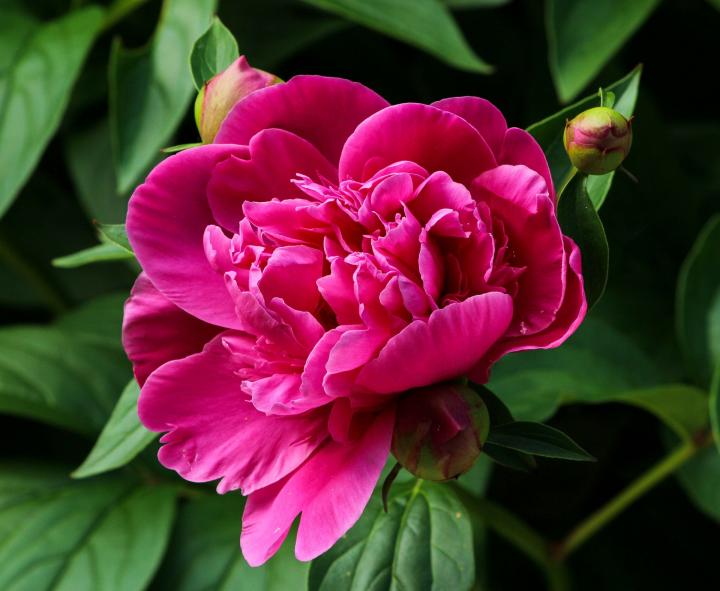
peony [pee-uh-nee] ExamplesWord Origin noun, plural pe·o·nies.
- any of various plants or shrubs of the genus Paeonia, having large, showy flowers, as the widely cultivated species P. lactiflora: the state flower of Indiana.
Origin of peony before 1000; Middle English Late Latin peōnia, Latin paeōnia Greek paiōnía peony, akin to Paiā́n paean; replacing Middle English pione Anglo-French Old French peone Latin; replacing Old English peonie Late Latin, Latin, as above Examples from the Web for peony Contemporary Examples of peony
More often than not, Peony went with green, choosing to take care of both herself and Rita.
What Can Animals Teach Us About Our Morality?
Robert Herritt
April 5, 2013
Her two previous novels, Snowflower and the Secret Fan and Peony in Love, were also bestsellers.
Sandra McElwaine
June 19, 2009
Historical Examples of peony
Flora, whom he had left a lily, had become a peony; but that was not much.
Charles Dickens
You can clamber on the snowdrift, Peony, and reach them easily.
Boys and Girls Bookshelf (Vol 2 of 17)
Various
It is our little snow-image which Peony and I have been making.
Boys and Girls Bookshelf (Vol 2 of 17)
Various
Upon him drifted Mrs. Worthington, like a peony in the tideway.
Maurice Henry Hewlett
Paul’s face was like a peony for colour, but he pouted his lips also, and bent to meet hers.
David Christie Murray
British Dictionary definitions for peony peony paeony noun plural -nies
- any of various ranunculaceous shrubs and plants of the genus Paeonia, of Eurasia and North America, having large pink, red, white, or yellow flowers
- the flower of any of these plants
Word Origin for peony Old English peonie, from Latin paeōnia, from Greek paiōnia; related to paiōnios healing, from paiōn physician Word Origin and History for peony n.
a 16c. merger of Middle English pyony (from Old English peonie) and Old North French pione (Modern French pivoine), both from Late Latin peonia, from Latin pæonia, from Greek paionia (fem. of paionios), perhaps from Paion, physician of the gods (or Apollo in this aspect), and so called for the plant’s healing qualities. The root, flowers, and seeds formerly were used in medicine.
 Liberal Dictionary English Dictionary
Liberal Dictionary English Dictionary